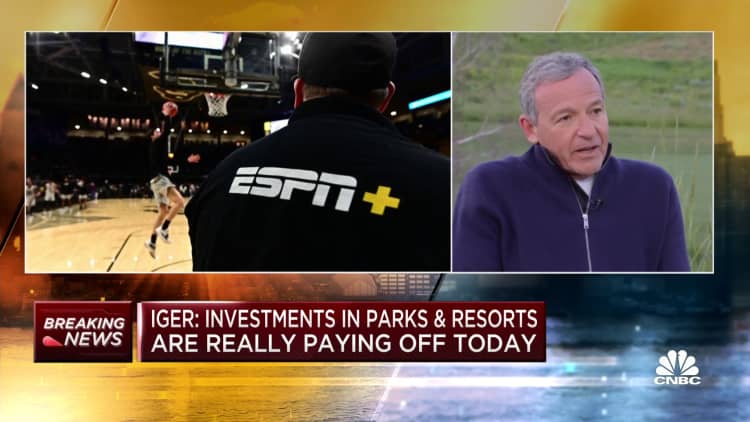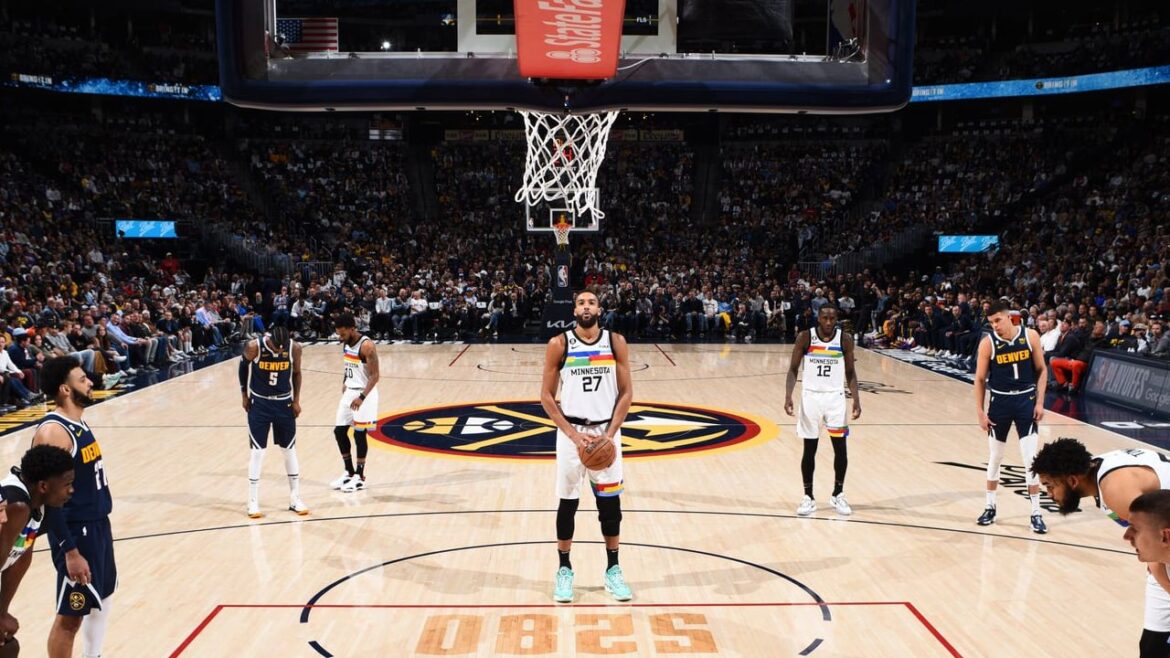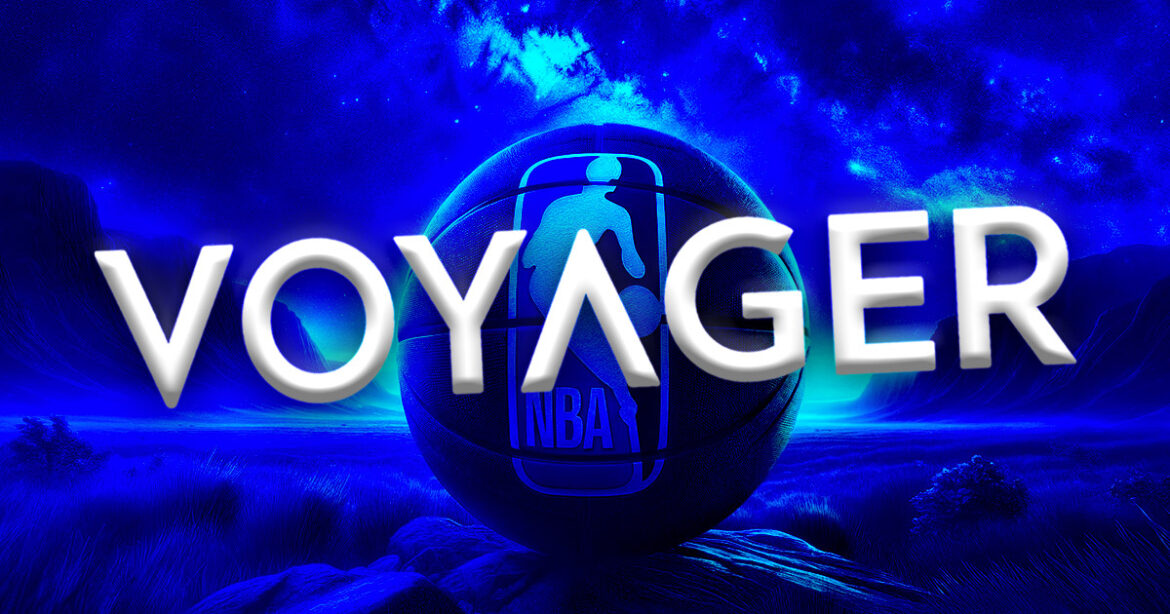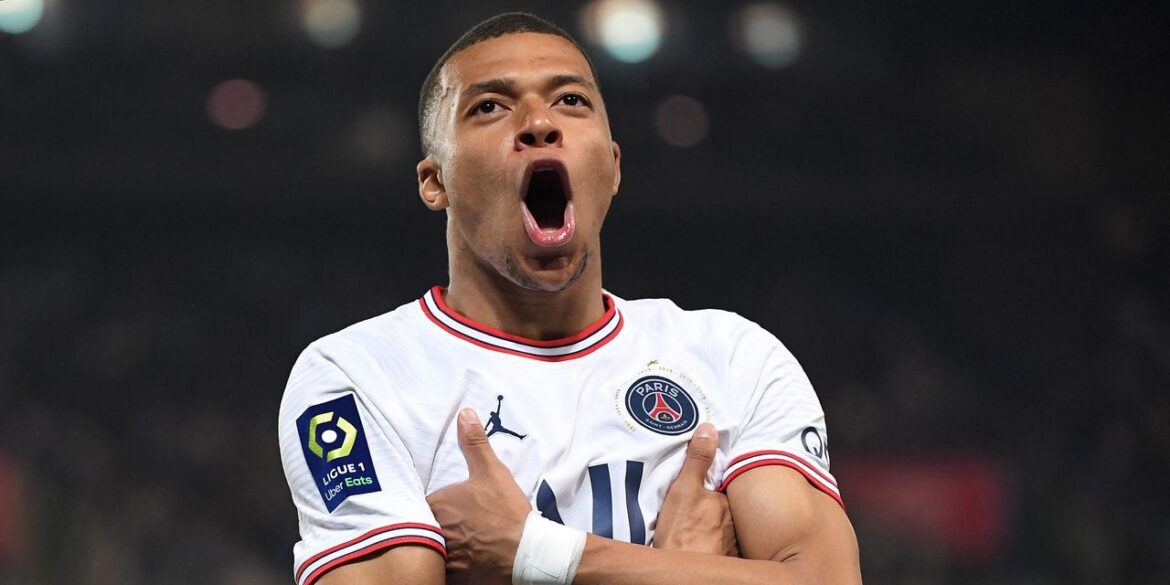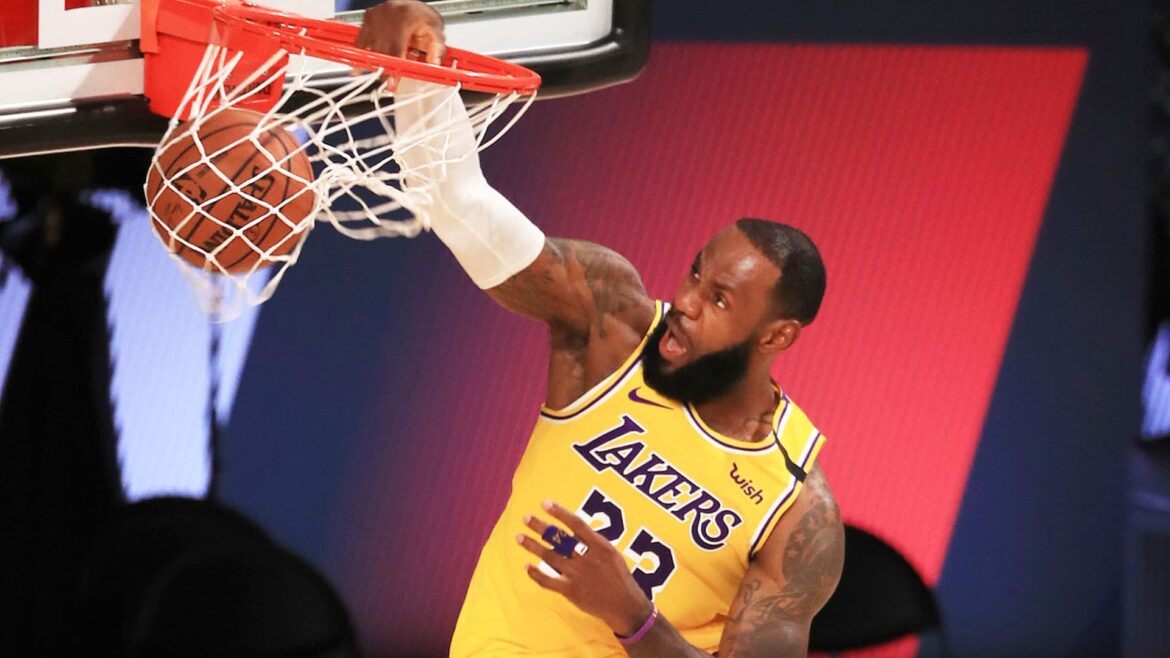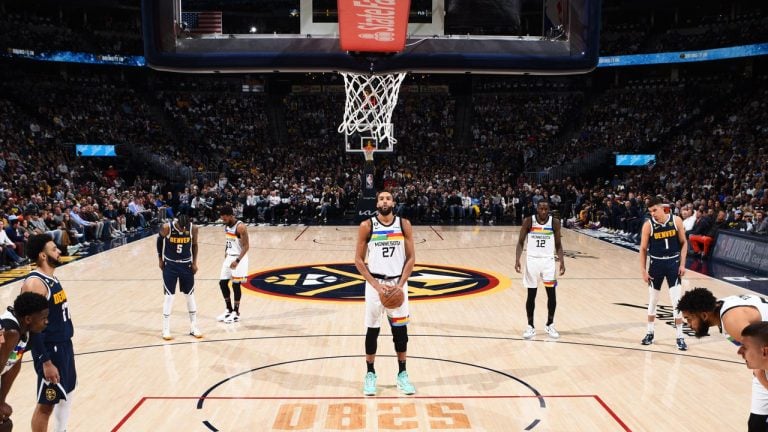 Investors in the bankrupt cryptocurrency exchange Voyager Digital are suing the National Basketball Association (NBA), and New Jersey’s oldest law firm, McCarter & English. This emerging legal battle illustrates how even some of the largest and most reputable brands and companies can quickly become ensnared in controversy in an industry marred by a tangled web […]
Investors in the bankrupt cryptocurrency exchange Voyager Digital are suing the National Basketball Association (NBA), and New Jersey’s oldest law firm, McCarter & English. This emerging legal battle illustrates how even some of the largest and most reputable brands and companies can quickly become ensnared in controversy in an industry marred by a tangled web […]
Source link
NBA
Former SEC chief criticizes NBA handling of controversial crypto partnerships

The National Basketball Association (NBA) should be held responsible for the alleged misconduct of its teams, according to a former official of the US Securities and Exchange Commission (SEC).
On Feb. 6, a proposed class-action lawsuit was filed against the sports organization concerning its marketing partnerships with the defunct crypto lender Voyager Digital.
The lawsuit asserts that the NBA demonstrated “gross negligence” by endorsing Voyager’s promotional agreement with the Dallas Mavericks. It further contends that the NBA should be accountable for approving Voyager’s unregistered securities.
Additionally, the plaintiffs argue that the NBA knowingly embraced the risks associated with collaborating with crypto entities like Voyager, Coinbase, and FTX.
They claim the NBA accepted “billions in promotional compensation” amidst challenges such as dwindling arena attendance and substantial television revenue losses due to the COVID-19 pandemic.
“The NBA violated their own written Crypto Currency Protocols, all solely for its own financial gain,” the lawsuit stated.
Former SEC official makes case against NBA.
A former SEC official argued that the NBA should be made to pay if it is complicit.
John Reed Stark, the former SEC Chief of Internet Enforcement, said:
“The NBA should be held responsible for Voyager-related and other similar kinds of alleged misconduct by NBA teams.”
Stark highlighted that the NBA, being a globally renowned and financially influential entity, likely exercises some degree of oversight on how its teams engage investors and navigate risky investments.
Therefore, the organization has to justify its actions or inactions, particularly as its teams continue to promote precarious NFT ventures, questionable crypto platforms, and other financially perilous investments.
The NBA has yet to respond to CryptoSlate’s request for comment as of press time.
While Stark suggested potential refunds for affected investors if NBA complicity in the Voyager matter is confirmed, he also emphasized the need for the NBA to establish a robust compliance framework for team advertising partnerships. Such measures, he argued, would prevent associations with questionable crypto firms and illicit businesses like heroin manufacturers.
NBA players react to reported $700 million offer for Kylian Mbappé: ‘Wtf’
The Ligue 1 soccer club Paris Saint-Germain has entered negotiations with Saudi Arabian club Al Hilal over star PSG and France striker Kylian Mbappé, according to multiple reports.
Mbappé, who is in the last year of his PSG contract, could receive a massive payday of $776 million for a single year as part of the deal, according to reports from CBS and transfers expert Fabrizio Romano, by far the richest single-season sports contract ever out. That number would include “commercial” deals, Romano reported, in addition to Mbappé’s soccer obligations to the Saudi club.
After news broke on Monday that PSG is reportedly willing to move on from the 24-year-old superstar, athletes beyond the footballing world reacted to the news, perhaps wondering if they’d chosen the wrong sport to play.
Damian Lillard is one of the highest-paid players in the NBA at $45 million per season, but his deal is a fraction of Mbappé’s potential contract. His response to the money Mbappé might soon make? “Wtf lol.”
Milwaukee Bucks star Giannis Antetokounmpo — reported annual salary: $45.6 million — looked to be wondering if he could switch positions with the French footballer. “You can take me,” the NBA star tweeted to Al Hilal, referencing a purported resemblance. Mbappé replied to Antetokounmpo with a series of laughing emojis.
Mbappé’s reported contract offer is hundreds of millions more than LeBron James’s $530 million lifetime earnings over his 21-year NBA career.
James and Golden State Warriors forward Draymond Green also reacted to the Mbappé news on Monday in Twitter posts.
Soccer stars are some of the highest-paid athletes in the world, and players like Lionel Messi, the Argentine megastar who spent decades at FC Barcelona before that legendary club’s sudden financial woes landed him at PSG (and, this summer, Inter Miami in the U.S.) and Cristiano Ronaldo routinely lead those lists, with recent contracts getting not only richer but more creative, including, for example, ownership stakes.
To be clear, Mbappé would need to sign off on a deal with Al Hilal to receive that record-smashing pay, and ESPN reported that he is unlikely to do so. Mbappé is one of the best footballers in the world and reports indicate he would prefer to play in a top league like Spain’s La Liga or the English Premier League instead of the less robust Saudi Pro League, even as, of late, a number of boldface names have been drawn to the kingdom.
Mbappé has made roughly $292 million in his career, according to Capology.com estimates.
See also: The top 5 highest-paid women’s soccer players at the 2023 Women’s World Cup
Other well-known players have joined the Saudi League in recent years for huge contracts. The Portuguese superstar Cristiano Ronaldo, who has starred for Manchester United and Real Madrid, is earning an estimated $213 million this year from the club Al Nassr, the biggest annual deal in sports, and Karim Benzema of France and Real Madrid fame is reportedly collecting $214 million on his two-year contract with Saudi Arabia’s Al-Ittihad.
For its outsized roles in LIV Golf, English soccer and Formula 1, some critics have called out Saudi Arabia for “sportswashing,” a criticism leveled at entities alleged to be using an athletic event or association to polish a tarnished reputation.
According to the U.S. Department of State, Saudi Arabia has been accused in recent years of multiple human-rights violations, including: unlawful killings; executions for nonviolent offenses; forced disappearances; torture and cases of cruel, inhuman or degrading treatment of prisoners and detainees by government agents; harsh and life-threatening prison conditions; arbitrary arrest and detention; and taking political prisoners or detainees, among other offenses.
NBA Star Jimmy Butler Seeks Dismissal from $1B Binance Class Action Lawsuit
The NBA star’s involvement in Binance’s marketing campaign drew significant attention, considering his status as a prominent figure in professional basketball.
The Miami Heat’s star basketball player Jimmy Butler is taking legal action to dismiss his involvement in a class-action lawsuit against celebrities employed by Binance, the world’s largest cryptocurrency exchange, to promote its product offerings. The case, which amounts to a staggering $1 billion, was filed in April by The Moskowitz Law Firm and Boies Schiller Flexner. Binance is accused of engaging in deceptive practices by enlisting celebrities and influencers, including Butler, to promote unregistered securities, specifically referring to BNB.
On July 24, Butler’s legal team filed a motion to clear him from the lawsuit. According to the court filing, the three tweets the basketball star shared promoting the exchange between February 2 and February 13, 2022, did not endorse any unregistered securities contrary to the claims made in the lawsuit. Instead, the tweets were focused on encouraging potential investors to conduct thorough research before engaging in cryptocurrencies.
Butler Named Alongside Binance and Its CEO in the Lawsuit
In one of the promotional videos shared by Binance on Twitter before the 2022 Super Bowl, Butler emphasized the importance of conducting thorough research and trusting oneself before venturing into the digital asset market. He also warned viewers that influential figures in the industry might not be aware of individual investors’ financial circumstances, advising them to exercise caution.
Trust yourself.
02.13.22
Here’s a message from all-star basketball forward @JimmyButler ⤵️ pic.twitter.com/WS9XCQrlhO
— Binance (@binance) February 2, 2022
However, in the lawsuit, amended on June 27, Butler’s tweets were accused of being deceptive as they coincided with the promotion of free Binance non-fungible tokens (NFTs).
The NBA star’s involvement in Binance’s marketing campaign drew significant attention, considering his status as a prominent figure in professional basketball. However, he is not the only defendant in the lawsuit. Binance, along with its CEO Changpeng Zhao (CZ) and popular YouTubers Graham Stephan and Ben Armstrong, also known as BitBoy Crypto, were named in the class action suit.
Butler, Zhao, Binance, and Armstrong have also filed separate motions to dismiss the lawsuit. Notably, on June 15, YouTuber Stephan was removed from the suit.
Potential Impact of the Case on Celebrity Endorsements
The case has raised questions about the responsibilities of influential figures in cryptocurrency, mainly due to the lack of specific regulations governing crypto-related promotions in the United States.
The outcome of Butler’s motion to dismiss could have significant implications for future celebrity endorsements in the digital asset industry. The case may prompt a reevaluation of advertising practices and the need to provide clearer guidelines to safeguard consumers from misleading information.
In a similar incident last year, the US Securities and Exchange Commission (SEC) fined Kim Kardashian $1.26 million for promoting a crypto project called EthereumMax (EMAX).
The billionaire socialite and other celebrities, including Floyd Mayweather, faced a class action lawsuit from investors who claimed they were misled by the endorsements, leading to significant losses. The suit alleged that these influencers engaged in a pump-and-dump scheme. The case was later dismissed by a US court in December 2022.
next
Binance News, Blockchain News, Cryptocurrency news, News

Chimamanda is a crypto enthusiast and experienced writer focusing on the dynamic world of cryptocurrencies. She joined the industry in 2019 and has since developed an interest in the emerging economy. She combines her passion for blockchain technology with her love for travel and food, bringing a fresh and engaging perspective to her work.
You have successfully joined our subscriber list.
LeBron James of the Los Angeles Lakers at a game against the LA Clippers at ESPN Wide World Of Sports Complex on July 30, 2020 in Lake Buena Vista, Florida.
Mike Ehrmann | Getty Images
As Disney considers a strategic partner for ESPN, Chief Executive Officer Bob Iger and ESPN head Jimmy Pitaro have held early talks about bringing professional sports leagues on as minority investors, including the National Football League, National Basketball Association and Major League Baseball, according to people familiar with the matter.
ESPN has held preliminary discussions with the NFL, NBA and MLB about a variety of new partnerships and investment structures, the people said. In a statement, an NBA spokesperson said, “We have a longstanding relationship with Disney and look forward to continuing the discussions around the future of our partnership.”
Spokespeople for ESPN, the NFL and MLB declined to comment.
Talks with the NFL have occurred in conjunction with the league’s own desire for a company to take a stake in its media assets, including the NFL Network, NFL.com and RedZone, said the people, who asked not to be named because the talks have been private.
The NBA and Disney have broached many potential structures around a renewal of media rights, the people said. Disney and Warner Bros. Discovery have exclusive negotiating rights with the NBA until next year.
Iger said last week in an interview with CNBC’s David Faber that Disney is looking for a strategic partner for ESPN as it prepares to transition the sports network to streaming. He didn’t elaborate on what exactly that meant beyond saying a partner could bring additional value with distribution or content. He acknowledged selling a stake in the business was possible.
Disney owns 80% of ESPN. Hearst owns the other 20%.
“Our position in sports is very unique and we want to stay in that business,” Iger said to Faber. “We’re going to be open minded about looking for strategic partners that could either help us with distribution or content. I’m not going to get too detailed about it, but we’re bullish about sports as a media property.”
Theoretically, a jointly owned subscription streaming service among multiple leagues could eventually give consumers new packages of games and other innovative ways to take in content.
The move would be a logical one for Disney as it tries to move past the traditional cable subscriber model and underscores how badly the company wants to find a solution for the sports network as its linear subscribers decline. Still, ESPN ratings have climbed in recent years on major sporting events. There’s no better partner for sports content than the leagues, themselves.
Superficially, it may make less sense for the NBA, NFL and MLB which sign lucrative media rights deals with many media partners that fuel team revenue and player salaries with a range of media companies.
Professional sports leagues could face conflicts of interest if they take a minority stake in ESPN. Owning a stake in ESPN may irritate Disney’s competitors, such as Comcast‘s NBCUniversal, Fox, Amazon, Paramount Global and Apple, who help make the leagues billions of dollars by participating in bidding wars for sports rights. Taking an ownership stake in ESPN could give leagues the incentive to boost the value of that entity rather than striking deals with competitors.
There would also be hurdles for Disney. ESPN also employs hundreds of journalists that cover the major sports leagues. Selling an ownership stake to the leagues could cloud the perception of objectivity for ESPN’s reporting apparatus.
Still, the leagues are already business partners with ESPN. It’s possible ESPN could put measures in place to ensure reporters can continue to cover the leagues while minimizing conflicts, but it adds another layer of complexity to any deal.
A streaming-first ESPN
ESPN is trying to forge a new path as a digital-first, streaming entity. Disney realizes ESPN won’t be able to make money like it previously has in a traditional TV model.
Selling a minority stake in ESPN to the leagues could mitigate future rights payments, allowing Disney to better compete with the big balance sheets of Apple, Google and Amazon. It would also guarantee ESPN a steady flow of premium content from the leagues.
Until last quarter, Disney’s bundle of linear TV networks still had revenue growth because affiliate fee increases to pay-TV providers — largely driven by ESPN — made up for the millions of Americans who cancel cable each year. That trend finally ended last quarter, according to people familiar with the matter. Accelerating cancellations have now overwhelmed fee increases, and linear TV revenue outside of advertising has begun to decline.
“A lot has been said about renting [sports right] versus owning,” Iger said last week in his CNBC interview. “If you can rent it and continue to be profitable from renting, which we have been and we believe we will continue to be, then there’s value in staying in it. We have great relationships with Major League Baseball, and the National Hockey League, and various college conferences, and of course the NFL and the NBA. It’s not just about the live sports coverage of those leagues, those teams, it’s also about all of the shoulder programming it throws off on ESPN and what you can do with it in a streaming world.”
ESPN would like to morph itself into a streaming hub for all live sports. Management would like to launch a feature allowing ESPN.com or the ESPN app to funnel users to games no matter where they stream, CNBC reported earlier this year.
While striking a deal with professional sports leagues wouldn’t be easy, Disney appears to be pushing the envelope on its thinking to prepare for a streaming-dominated world that includes its full portfolio of sports rights.
“If [a partner] comes to the table with value, whether it’s content value, distribution value, whether it’s capital, whether it just helps derisk the business — that wouldn’t be the primary driver — but if they come to the table with value that enables ESPN to make a transition to a direct-to-consumer offering, we’re going to be very open minded about that,” Iger said.
WATCH: Disney CEO Bob Iger talks to CNBC’s David Faber about ESPN and its future
